7 Effective Home Remedies For Spider Bites
As long as you know the symptoms and have these remedies handy, there is nothing to panic about.
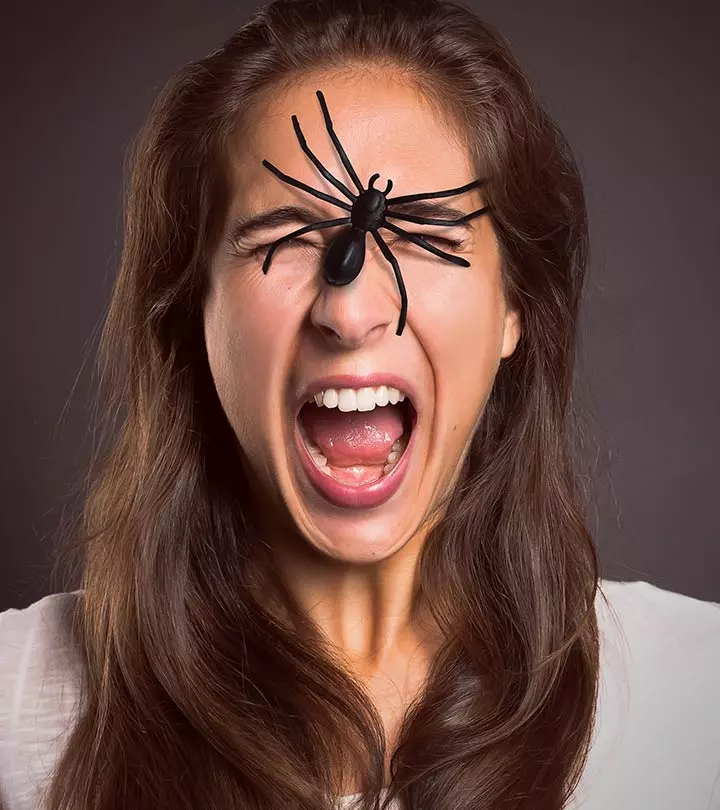
Image: Shutterstock
Peter Parker turned to Spiderman after a spider bit him. That will not be the case with you. If you get bitten by a spider, you would rather search for home remedies or first aid tips for spider bites! You hear many stories about bug bites from friends and family members who have recently gone hiking. Approximately 20.8% of non-canine bites between 2001-2010 were caused by arachnids (1).
Sometimes the venom from spider bites can cause serious complications, and the patient must be taken to the hospital. However, the reactions are mild in most cases and can be treated with some home remedies. You can apply any of the remedies mentioned in this article to treat mild reactions to spider or bug bites. Check them out.
In This Article
Spider Bites – An Overview
In most cases, spider bites are usually harmless. Most people mistake other insect bites for spider bites. Some patients have also mistaken certain skin infections to be spider bites.
Very few known species of spiders have poison that can harm humans. The most well-known of these species are the black widow spider and the brown recluse spider. You can identify a black widow by its glossy black body and red hourglass markings. It is often found in dark areas, such as woodpiles and under furniture. The brown recluse spider has a light brown body and a violin-shaped marking on the back. It tends to find shelter in undisturbed areas like basements and closets.
Spider bites that are slightly more serious can cause redness, itching, and swelling. However, if you are bitten by a black widow spider, you will experience abdominal cramps. A tarantula bite can cause rashes, irregular heartbeat, low blood pressure, and shock. Brown recluse spider bites cause sharp pains. Administration of a relevant antivenom is a necessity where poisonous spider bites are concerned.
 Fun Fact
Fun FactIf you have a severe bite, the skin around the bite will slowly turn purple, and blisters may appear.
Key Takeaways
- Aloe vera may help reduce the swelling and the infection related to spider bites.
- Potato juice may help reduce inflammation caused by spider bites.
- Visit the hospital if the spider bite is accompanied by symptoms like nausea, cramping, and difficulty in breathing.
What Does A Spider Bite Look Like?
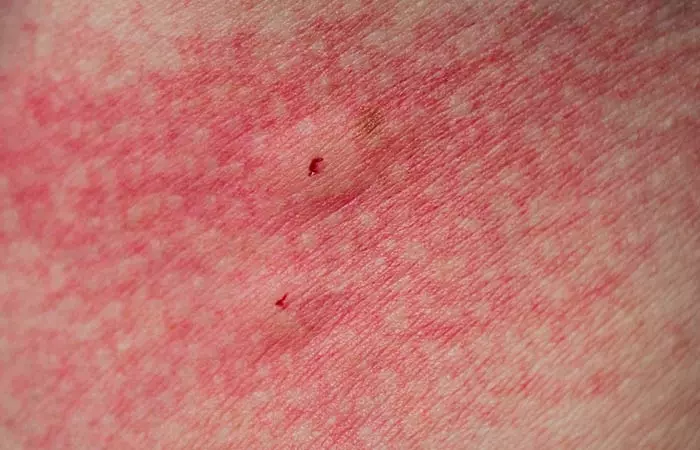
Typically, you won’t notice a spider bite until a few hours after being bitten. It becomes easier to treat a spider bite if you can identify the spider that bit you. You can identify a spider bite on your skin if you see any of these:
- Inflammation or swelling
- Red rashes
Inhabiting areas where spiders are naturally found (especially dark places, including areas under rocks) can put you at a greater risk of spider bites. In the following section, we will look at the symptoms of a spider bite.
Symptoms Of Spider Bites
Spider bites are characterized by:
- Red rashes
- Itching
- Muscular pain accompanied by cramps
- Excessive sweating
- Breathing difficulties
- Nausea
- Fever
- Confusion
- Restlessness
Out of these symptoms, mild spider bite reactions usually only include localized redness, swelling, dull aches, itching, and sometimes blisters. Other symptoms may indicate a severe reaction and may require medical attention for timely treatment.
Nthato Morakabi, a blogger, shared his experience and symptoms of a spider bite in his blog. He said, “Lots of pain…oh and dead skin around the bite (i).”
Spider bites take a longer time to heal as compared to other insect bites. It is essential to keep the bite clean to reduce the risk of infection.
 Trivia
TriviaWhat To Do If A Spider Bites You?
It is always easier to treat a spider bite if you know the type of spider that caused it. Once you identify the bite, you must try to reduce the pain by applying a cold compress to it.
If a spider bite occurs despite taking preventive measures, it is important to recognize when medical attention may be necessary. Scroll down to learn more.
When To Seek Medical Help
You should get medical attention when you have serious symptoms from a spider bite, such as extreme pain, swelling, or redness that spreads, nausea, breathing difficulties, cramping in your muscles, fever, chills, or an open wound with tissue damage. Poisonous spider bites, such as those from brown recluses or black widows, need to be treated immediately. Additionally, get medical attention right away if symptoms worsen after a few days, if there are indications of infection (such as pus, increased redness, or warmth), or if the bite happens close to the eyes or another sensitive location.
 Quick Tip
Quick TipLet us now look into the steps taken by medical professionals to treat spider bite.
Medical Treatment
In case you need to seek medical intervention to treat the spider bite, your doctor will take the following steps:
- They will clean the wound with soap and water.
- The doctor will observe the wound for potential infection.
- After cleaning the wound, the doctor will apply an antiseptic ointment.
- A tetanus booster may also be recommended if you haven’t had it in the last five years.
- They may prescribe antibiotics to fight infection.
If the bite is mild, you can try treating it at home. The following remedies can help.
How To Treat Spider Bites At Home
Spider or bug bites can be a nuisance, but some easy home remedies help soothe the irritation. For quick relief, check out these home remedies that can ease discomfort and reduce swelling without needing a trip to the doctor. You can also read about home remedies for bug bites to enhance your knowledge.
1. Cold Compress Or Ice Pack
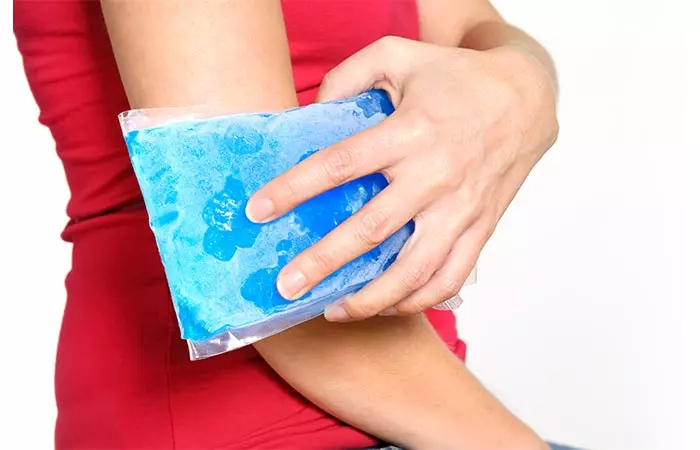
Spider bites cause swelling and pain. Ice can work as an analgesic, and the cold pack might help reduce pain and inflammation in the affected area (2).
You Will Need
- A cold compress or ice pack
- A bowl of water
What You Have To Do
- If you are using an ice pack, prepare some ice in your freezer.
- Place an ice pack on the affected area for 15 minutes daily.
How Often You Should Do This
Repeat as needed until the pain subsides.
2. Aloe Vera Gel
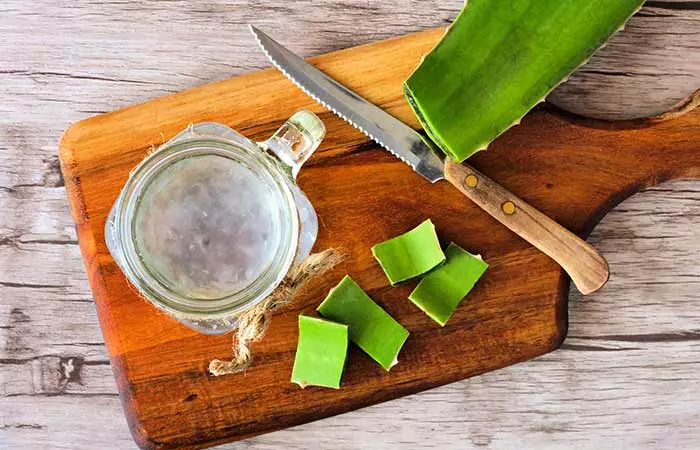
Research shows that aloe vera exhibits anti-inflammatory and antiseptic properties (3). This may help reduce the swelling and the infection related to spider bites.
You Will Need
1 teaspoon of aloe vera gel
What You Have To Do
- Take aloe vera gel on your fingers or a cotton ball and apply to the affected area.
- Massage this gel gently into the affected area for 5 minutes.
How Often You Should Do This
Do this 2 times daily.
3. Baking Soda
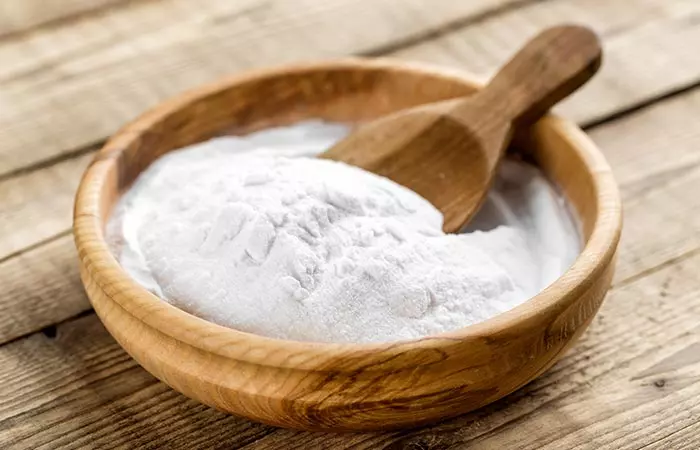
Baking soda is a commonly used natural solution for itchiness and inflammation (4), (5). It can also be used to prevent further infection that may surface with a spider bite.
You Will Need
- 1 teaspoon of baking powder
- Water (as required)
What You Have To Do
- Mix one teaspoon of baking soda with three to four drops of water to make a thick paste.
- Apply it to the affected area and leave it on for 10 minutes.
- Rinse thoroughly with water.
How Often You Should Do This
You can do this once daily until the redness and itching subside.
4. Witch Hazel
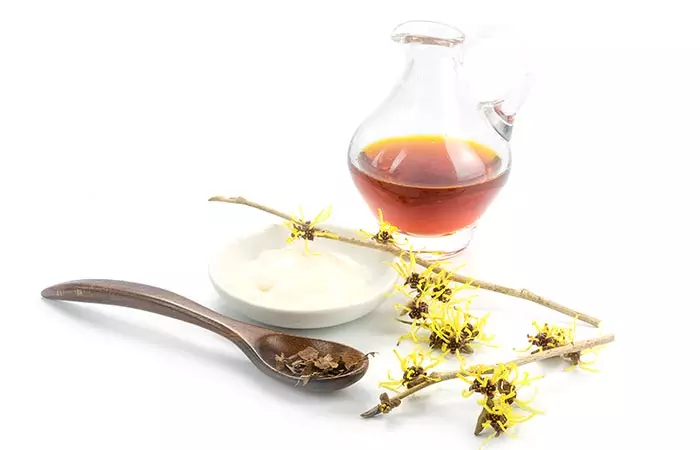
Witch hazel contains tannins, which are bioactive ingredients that possess anti-inflammatory properties (6).
Thus, it could be used to manage the inflammation caused by the spider bite.
You Will Need
- Witch hazel extract
- Sterile cotton ball or Q-tip
What You Have To Do
- Take a cotton ball or Q-tip and dab some witch hazel on it.
- Apply it to the spider bite and leave it to dry.
How Often You Should Do This
You may apply this to the affected area 3-4 times daily until the swelling reduces.
5. Essential Oils
(a) Lavender Oil
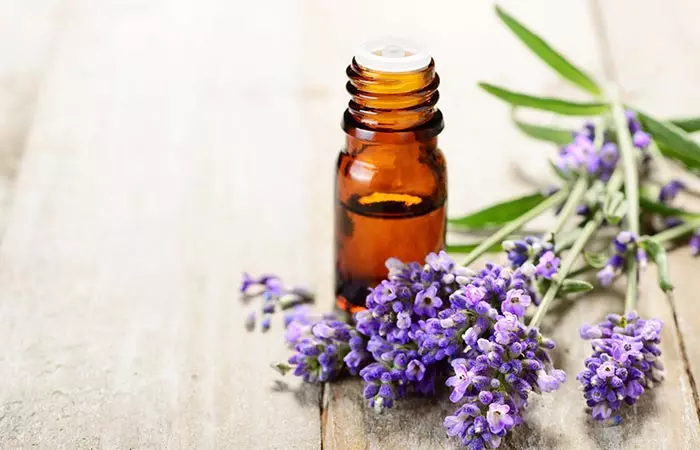
Lavender oil possesses anti-inflammatory and analgesic properties (7), (8). This can help in reducing the swelling and pain around the spider bite.
You Will Need
- A sterile cotton ball or gauze
- 2-3 drops of lavender oil
- A few drops of a carrier oil (coconut oil)
What You Have To Do
- Mix two to three drops of lavender oil with a few drops of coconut oil in a bowl.
- Dip a sterile cotton ball in this mixture and place it on the infected site.
How Often You Should Do This
You may use this remedy 3-4 times daily.
b) Chamomile Oil
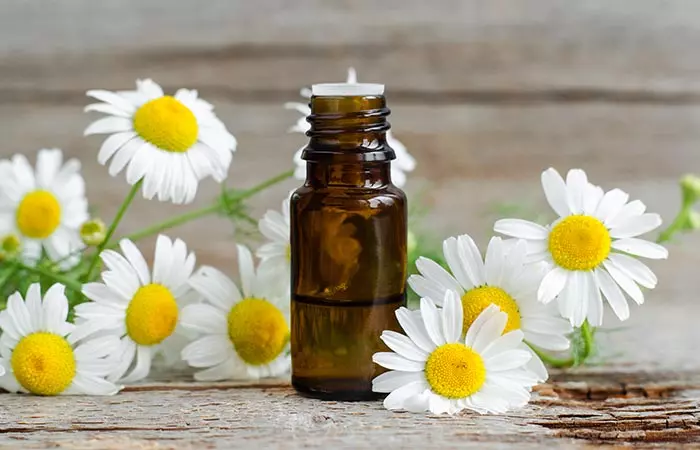
Chamomile oil has anti-inflammatory properties (9). This can help reduce the swelling caused by the spider bite and promote faster healing.
You Will Need
- A sterile cotton ball or gauze
- 2-3 drops of chamomile oil
- A few drops of a carrier oil (coconut oil)
What You Have To Do
- Mix two to three drops of chamomile oil with coconut oil.
- Dab a sterile cotton ball with this mixture.
- Place it on the affected area.
How Often You Should Do This
You can repeat this remedy 3-4 times daily.
6. Potato Poultice

Potato exhibits anti-inflammatory properties (10). Hence, it may help reduce inflammation that surfaces with a spider bite.
You Will Need
- A sterile gauze
- 2-3 potatoes
What You Have To Do
- Wash the potatoes and grate them.
- Take a sterile gauze and add the grated potato on it.
- Place it on the spider bite.
How Often You Should Do This
You can repeat this remedy 1-2 times daily.
7. Turmeric
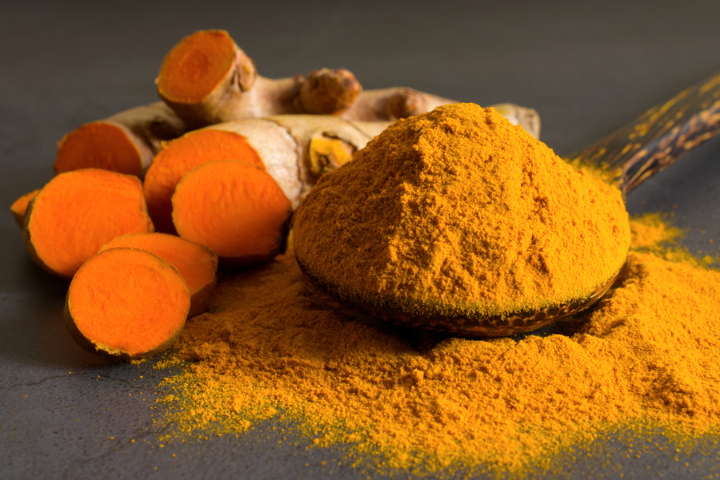
The curcumin present in turmeric has anti-inflammatory and antiseptic properties (11). This may help reduce the swelling and infection associated with spider bites.
You Will Need
- 1 teaspoon of turmeric powder
- ½ teaspoon of olive oil
What You Have To Do
- Mix turmeric powder with olive oil for a paste-like consistency.
- Apply the paste to the spider bite.
- Let it sit for about 20-30 minutes.
- Gently rinse it off with lukewarm water.
How Often You Should Do This
You can repeat this remedy 2-3 times a day until the spider bite improves.
Turmeric may help reduce inflammation associated with spider bites. However, if the bite worsens or you experience an allergic reaction, consult a doctor immediately.
Spider bites are most likely to happen if you go on a trek or travel to heavily forested areas. Treating mild spider bites could be easy, but prevention is always better.
How To Prevent Spider Bites
Here are a few steps you can take to prevent spider bites:
- If you are in a wooded area, make sure that you are wearing long-sleeved shirts, long pants, and gloves.
- Spray insect repellants on your trekking clothes.
- If you are at home, make sure that you clear out the cobwebs thoroughly.
- You should also regularly clean dark corners, attics, and basements to decrease the likelihood of spider encounters.
- Seal cracks in the walls or any other openings to prevent spiders from entering your home.
- Move your bed away from walls to prevent spiders from creeping into your bed.
- Shake out your clothes and shoes before putting them on to check for spiders.
Infographic: 7 Ways To Treat Spider Bites At Home
Most persons who get bitten feel some discomfort and the affected area shows redness. Only a small number of spiders worldwide can fatally hurt humans. By using these simple home remedies, you may be able to lessen your symptoms and hasten the healing process. See the infographic below to check out seven effective home remedies for spider bites.

Illustration: StyleCraze Design Team
Spider bites are harmless and usually resolve by themselves in a few hours. However, the severity of the symptoms depends on the type of spider. You may develop red rashes or red bumps and muscle pain and excessive sweating. Keep the wound clean, apply an antiseptic, and seek medical attention if you experience serious complications. Following these easy home remedies may help reduce the symptoms and speed up the healing process. These remedies are effective as they have anti-inflammatory, antiseptic, and soothing properties. In addition, it is recommended to wear full-sleeve tops or use anti-repellent creams to prevent spider bites.
Frequently Asked Questions
Can I put Neosporin on a spider bite?
Yes, you may put Neosporin on a spider bite after cleaning and gently drying the affected area. Neosporin is an over-the-counter topical antibiotic that may help eliminate the bacteria in the bite site.
Should you squeeze the pus out of a spider bite?
No, the pus on the site of a spider bite may indicate an infection and the need for medical attention.
What does a healing spider bite look like?
The appearance of a healing spider bite varies greatly, depending on which spider has caused the bite and how serious the bite is.
Illustration: Effective Home Remedies For Spider Bites
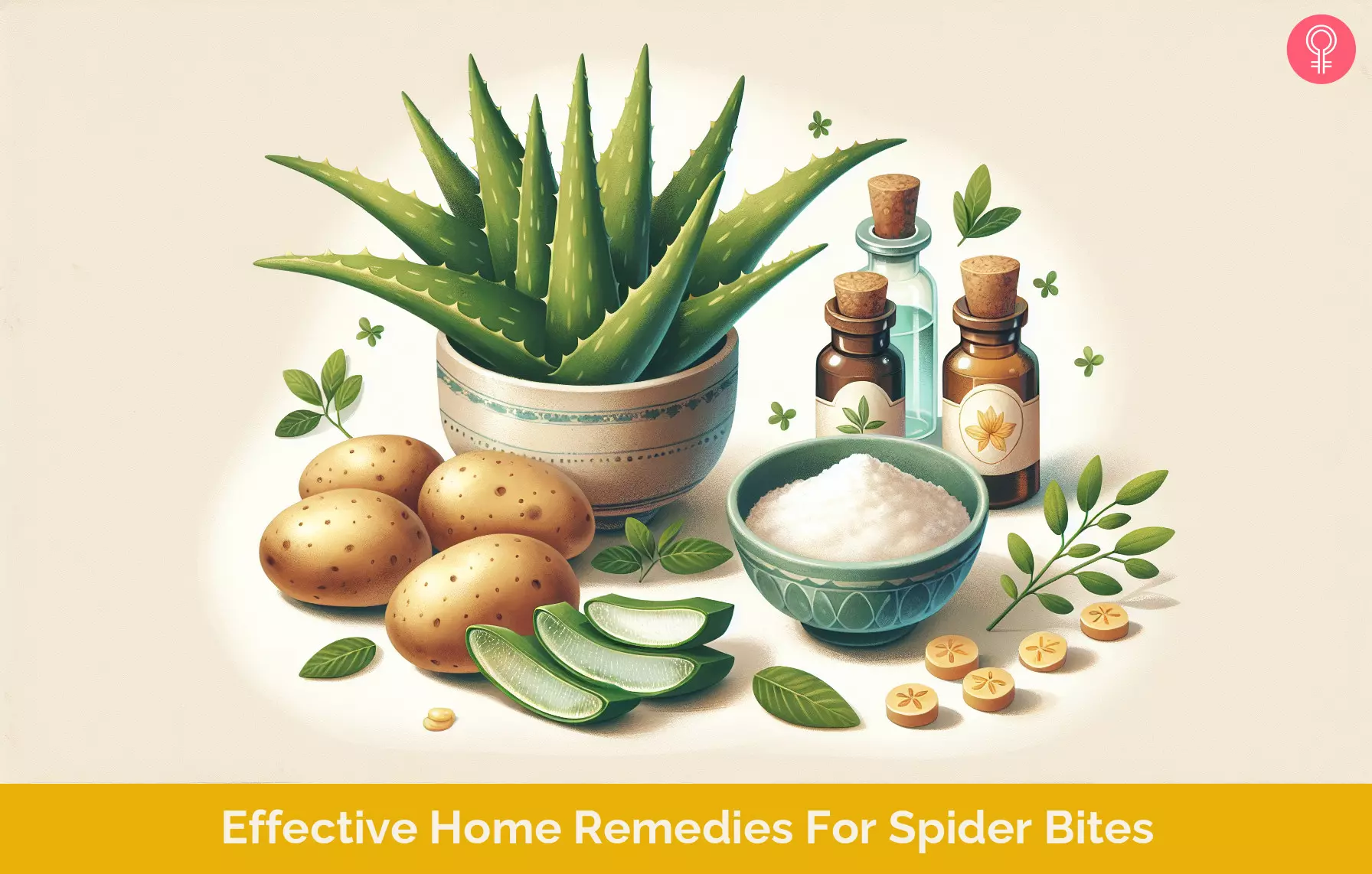
Image: Dall·E/StyleCraze Design Team
Learn how to manage spider bite swelling and redness with this helpful video! Check it out to get tips on how to reduce inflammation and discomfort quickly and safely.
Personal Experience: Source
StyleCraze's articles are interwoven with authentic personal narratives that provide depth and resonance to our content. Below are the sources of the personal accounts referenced in this article.
i. Bit by a Spider but I ain’t no Spiderman: The Realities of Character Developmenthttps://ascribetodescribe.wordpress.com/2015/05/27/bit-by-a-spider-but-i-aint-no-spiderman-the-realities-of-character-development/
References
Articles on StyleCraze are backed by verified information from peer-reviewed and academic research papers, reputed organizations, research institutions, and medical associations to ensure accuracy and relevance. Read our editorial policy to learn more.
- ’National Estimates of Noncanine Bite and Sting Injuries Treated in US Hospital Emergency Departments, 2001–2010’, Wilderness and Environmental Medicine, US National Library of Medicine, National Institutes of Health.
- ’Heated Debates: Hot-Water Immersion or Ice Packs as First Aid for Cnidarian Envenomations?’ Toxins, US National Library of Medicine, National Institutes of Health.
- ’ALOE VERA: A SHORT REVIEW’, Indian Journal of Dermatology, US National Library of Medicine, National Institutes of Health.
- ’Home Remedy Use Among African American and White Older Adults’, Journal of the National Medical Association, US National Library of Medicine, National Institutes of Health.
- ’Antibacterial activity of baking soda.’, Compendium of Continuing Education in Dentistry, US National Library of Medicine, National Institutes of Health.
- ’Medicinal plants used in treatment of inflammatory skin diseases’, Advances in Dermatology and Allergology, US National Library of Medicine, National Institutes of Health.
- ’Effect of Lavender (Lavandula angustifolia) Essential Oil on Acute Inflammatory Response’, Evidence-Based Complementary and Alternative Medicine, US National Library of Medicine, National Institutes of Health.
- ’Anti-inflammatory and analgesic properties of the leaf extracts and essential oil of Lavandula angustifolia Mill.’, Journal of Ethnopharmacology, ScienceDirect.
- ’Anti-Inflammatory and Skin Barrier Repair Effects of Topical Application of Some Plant Oils’, International Journal of Molecular Sciences, US National Library of Medicine, National Institutes of Health.
- ’Health Benefits and Cons of Solanum tuberosum’, Journal of Medicinal Plants Studies.
- “Impacts of turmeric and its principal bioactive curcumin on human health: Pharmaceutical, medicinal, and food applications: A comprehensive review”, Frontiers in Nutrition, US National Library of Medicine, National Institutes of Health.
Read full bio of Dr. Zeel Gandhi
Read full bio of Shaheen Naser
Read full bio of Anjali Sayee
Read full bio of Swathi E








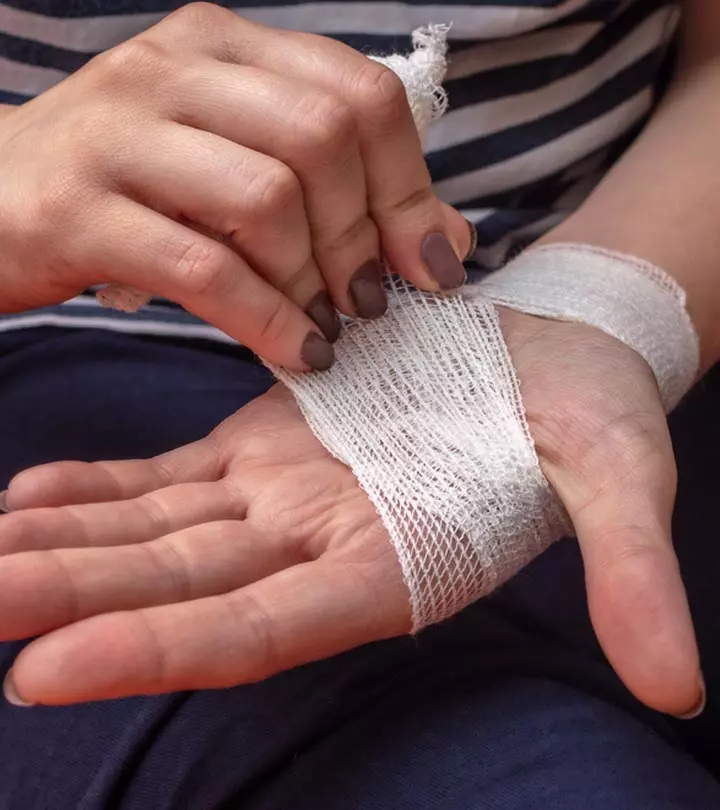




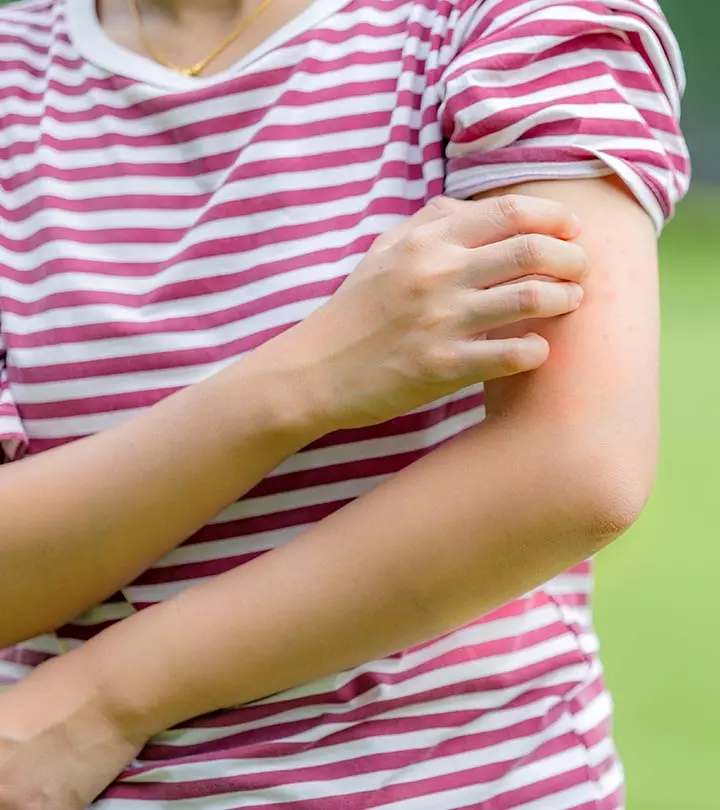

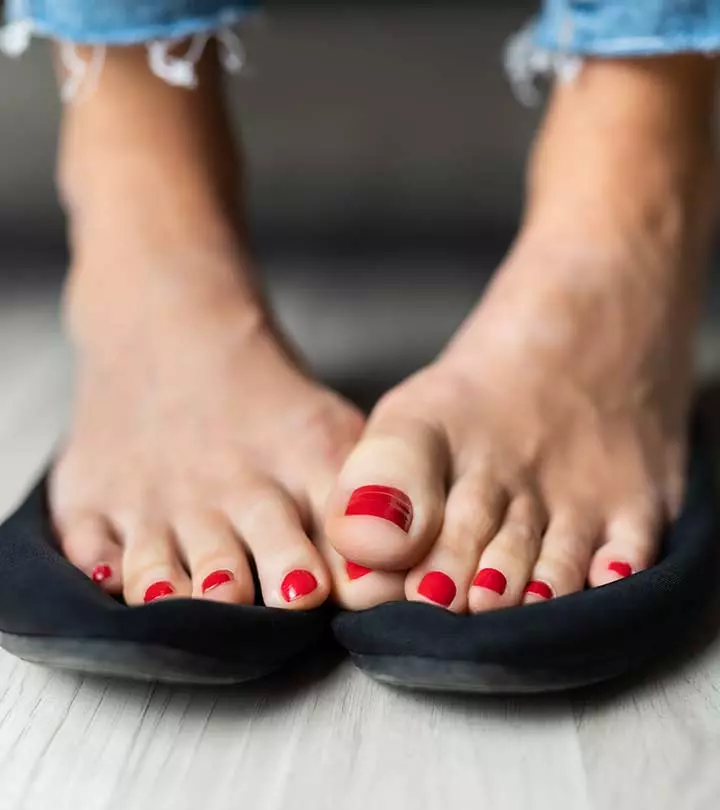



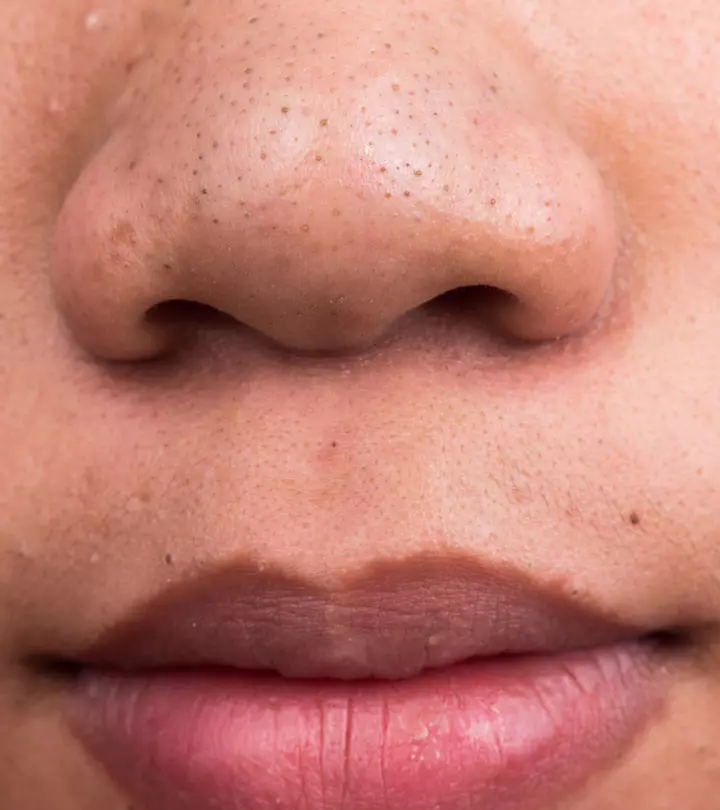
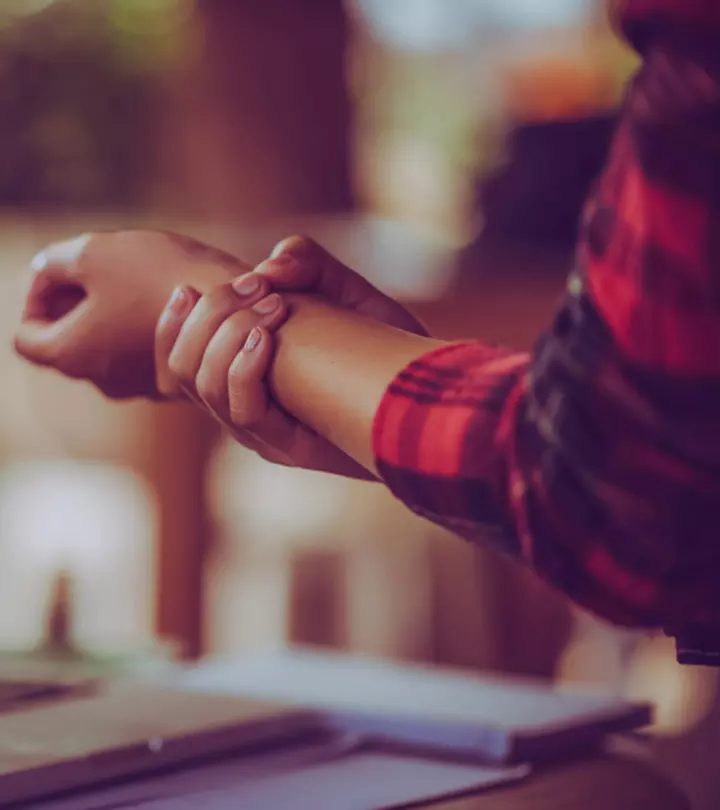


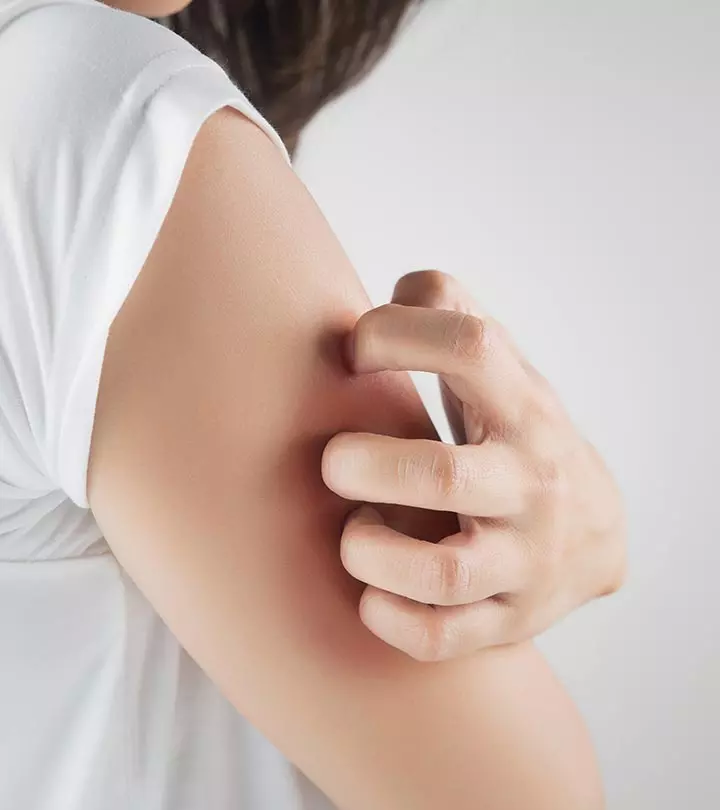

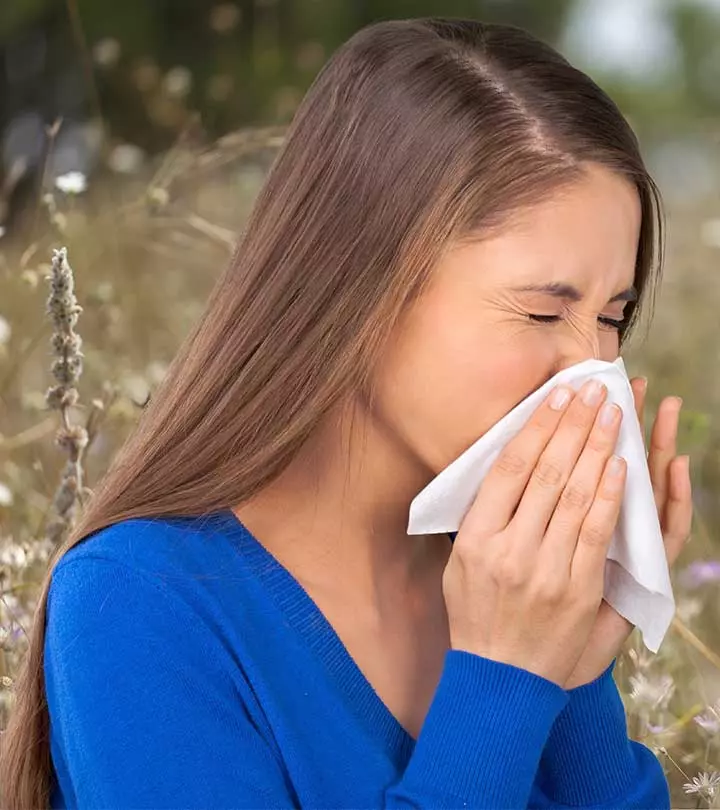
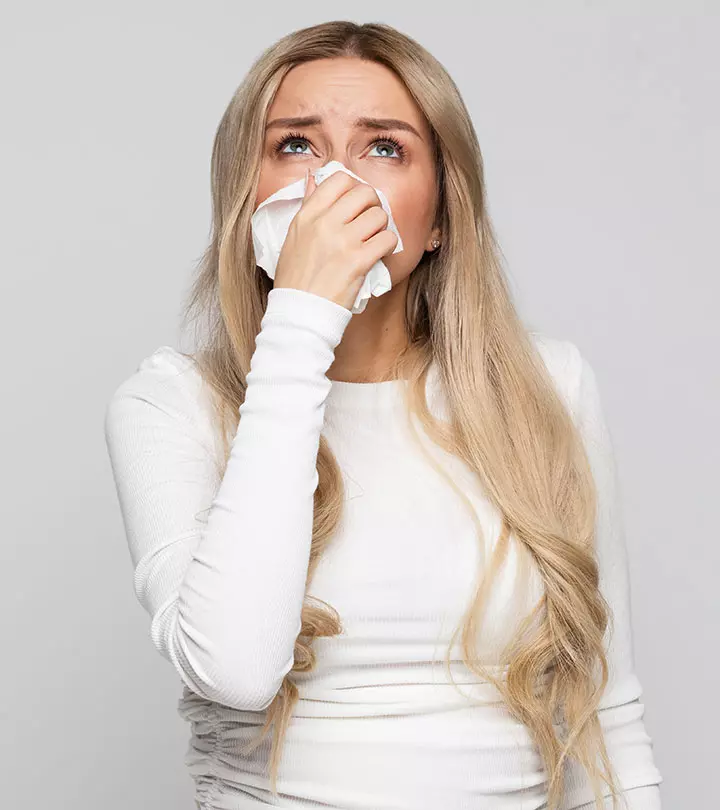
Community Experiences
Join the conversation and become a part of our empowering community! Share your stories, experiences, and insights to connect with other beauty, lifestyle, and health enthusiasts.